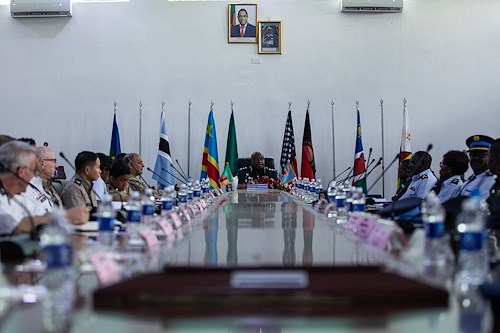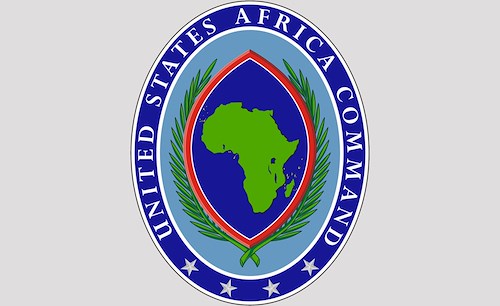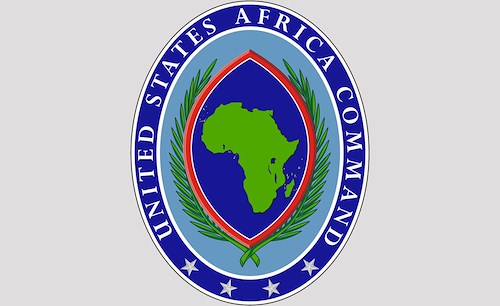He was attacked but he didn't know it; he didn't know he was dying. It took two days before he started feeling something might be wrong. A headache that wouldn't go away, an upset stomach. He was a bit warm, but who wouldn't be after they vomited. He thought to himself, "Great, it's the flu."
But it wasn't the flu. Soon he began to feel better; he must have beaten "it" with all that vitamin C he took. It wasn't a drawn out battle, it wasn't even considered "dramatic" by his friends. But a while later the symptoms came back and with a vengeance. This time there was fatigue, sweating, chills, diarrhea, loss of appetite and his skin turned a sickly yellow. He was strong the first time but weaker now after his earlier battle. He was attacked and he didn't even know it, and this time he wasn't the victor.
This might seem like some melodramatic B-movie, but versions of this scenario play out in the lives of nearly 1 million people around the globe annually. Worse, 800,000 of them don't win this battle. According to the U.S. Centers for Disease Control, in 2008 an estimated 190 million to 311 million cases of mosquito-borne malaria occurred worldwide and 708,000 - 1,003,000 people died, most of them young children in sub-Saharan Africa. Malaria kills more people in Africa than HIV/AIDS, and a U.S. government program, the President's Malaria Initiative (PMI) was launched under former President Bush and renewed under President Obama to provide $1.2 billion in assistance over five years to preventing and treating malaria in sub-Saharan Africa. Deaths have been reduced by approximately 20 percent since 2007 as part of an Africa-wide and worldwide malaria initiative, according to the World Malaria Day website, which sets aside each April 25 to promote awareness of the deadly disease.
According to Dr. Robert Holmes, a U.S. Air Force major serving as the US Africa Command (U.S. AFRICOM) Infectious Diseases Physician, "unlike Africans who chronically may live with the disease, U.S. personnel without immunity can die from malaria within a day or two."
The deadly form of malaria, which goes by the scientific name P. falciparum, is transmitted by mosquito. A female mosquito stabs the victim's flesh with her proboscis, a long, thin, straw-like growth through which she sucks her nightly meal.
However, a microscopic hitchhiker, P. falciparum, can slither its way into the bloodstream of the victim via the female mosquito's saliva.
These parasitic killers multiply in cyclic rotations until they overwhelm the immune system of their host, reducing that host to a quivering, shaking shell or, worse, a corpse.
The saddest part of the story is that Malaria can be prevented.
"Prevention is the key to avoid this painful illness that often requires intensive care hospitalization," Holmes said. "If you get appropriate therapy in time" and have access to "an advanced intensive care unit in many cases, you can be cured of Malaria," Holmes said. But he added that he really doesn't see the need to take the chance when so many methods of protection available to U.S. services members and others who visit high-risk areas in Africa.
Some regular travelers to the continent tend to ask, "Isn't malaria inevitable, the longer you spend time in Africa?" The answer from Holmes is a solid No. "This is a fallacy," he said. "Although avoiding mosquito bites must be a forced habit involving the regular use of insect repellants on your skin and in your clothing, avoiding all insect bites is a realistic goal." He adds that sleeping under a repellant-treated bed net where necessary is a great idea too. It only takes one bite from an infected insect to contract malaria so no matter how long you will be in an area it is critical that you are prepared to defend yourself the entire time you are there.
To protect yourself you should first know your enemy or, more importantly, you should understand mosquitoes are attracted to your skin odors and the carbon dioxide in your breath. On top of that, they also can detect your movement and the heat your body naturally generates. Numerous health websites refer to mosquitoes as nature's heat-seeking missiles as they search for blood that allows them to reproduce. They visually detect movement from a distance, then follow the body odors of potential victims. As they get closer yet, they home in on the heat of warm-blooded individuals. In the mosquito's world, where there's a warm creature, there's blood. This means that you are automatically a target for mosquitoes as soon as you are within their habitat.
The easiest measure to protect oneself from contracting Malaria is the most obvious: prevent insect bites in the first place and take steps to create a "layered" defense. A layered defense starts with your environment. When possible only spend time in areas that are regularly treated with insect repellants or insect controlling agents. You may not have control of this, so it then falls to the responsibility of the individual to protect themselves.
Mosquitoes are most prevalent at night when the females leave their nests to feed. Humans usually use the night for sleeping due to the obvious darkness and cooler air in mosquito prone environments. This creates a challenge -- the cooler nighttime air means mosquitoes can more easily find our body warmth, so people can be most vulnerable while sleeping. According to the Worldwide Malaria 2010 report , by the end of 2010, approximately 289 million insecticide-treated mosquito nets had been delivered to sub-Saharan Africa. "Enough to cover 76 percent of the 765 million persons in risk of Malaria," the report said.
Traveling with your own mosquito netting ensures you will have a refuge at all times. Electricity in Africa is often not completely reliable, so even when staying in an international hotel there exists the possibly of power outages where visitors will open their windows, literally inviting in these killers. To nail the point home, AFRICOM travelers are provided with treated bed nets that they are required to carry with them to Africa in case the need arises.
Long-sleeved shirts and pants will deter most mosquitoes, but some mosquitoes can bite through leather. When you treat clothing with permethrin, you increase your protection a great deal. Permethrin is a member of the pyrethroid class of pesticides. According to the Environmental Protection Agency, the cancer danger one might expect from pesticide exposure is far below the agency's non-cancer and cancer levels of concern. In addition, the research data amassed over 50 years is clear-- this is not only safe but a really smart way to keep the bugs off.
Along with treating clothing with permethrin, you can treat your skin directly with Diethyltoluamide insect repellant, more commonly known as DEET. According to the EPA, nearly one third of the U.S. population currently uses DEET annually in over-the-counter topical crrrrÃmes and formulations with concentrations of the active ingredient ranging from 4 to 100 percent. DEET is safe to use on children with no age restrictions.
DEET repels mosquitoes and several other types of biting insects by creating a vapor barrier that deters the aggressor from making contact with the skin. The vapor has an offensive smell and tastes bad to the insect. According to a recent study from Howard Hughes Medical Institute, DEET confuses the insects by jamming their odor receptors. Just like at the July Fourth barbecue or while fishing, DEET works in Africa to prevent the bite of an infected mosquito in the first place.
Your final line of defense is medication, critical to ensuring you are protected in case you are bitten.
Yet regrettably, "there are numerous reports of Active Duty AFRICOM personnel becoming infected with Malaria annually," says AFRICOM's Command Surgeon, Dr. Robert Miller, a U.S. Army colonel.
"They always seem to have the same theme ...not following through with force health protection measures like your life depended on it," Miller said in an interview. He also recently wrote a letter to the editor of Stars and Stripes, the daily newspaper that serves overseas military communities, which had carried an Associated Press article describing concerns about the anti-malarial drug mefloquine.
"Use of anti-malarial medications is critical as a last line of defense when other health protection measures fail to prevent bites from infected mosquitoes," Miller wrote in the letter, printed December 2, 2011. AFRICOM currently prescribes three different medications to personnel traveling to the continent: doxycycline, malarone and mefloquine, Miller wrote.
The Associated Press article quoted epidemiologist and Army Major Dr. Remington Nevin, who said that "mefloquine is a zombie drug. It's dangerous, and it should have been killed off years ago." However, AFRICOM medical officials note that mefloquine can be effective, especially for personnel who have used the anti-malarial drug previously without exhibiting side effects.
The Associated Press article accurately stated that over the last three years the Army has cut the amount of mefloquine it prescribes by 75 percent but he then ties this to increased deployments of American service members to "Malaria-prone Afghanistan."
The article also says some users of mefloquine claimed to have experienced "varying degrees of psychiatric symptoms ranging from nightmares, depression and paranoia to auditory hallucinations and complete mental breakdowns." The article quotes Army literature as saying such symptoms occur at a rate of between one per 2,000-13,000 people, though the article noted that some critics of the drug suspect the incident rate for side effects is much higher.
The reality, according to AFRICOM health officials, is that the Army has in-fact reduced the number of prescriptions for this particular medication, but it is due to improvement in the screening process used by medical personnel when determining the best type of medication to prescribe a traveler. Miller, the AFRICOM surgeon, said in his letter to the editor that the Associated Press article "already has misled some personnel to conclude either that mefloquine is dangerous for all or that no safe anti-malarial is available. Neither is true. Use of anti-malarial medications is critical as a last line of defense when other health protection measures fail to prevent bites from infected mosquitoes.
Unfortunately, due to ever-changing resistance of the parasite, only three medications are currently effective in Africa: doxycycline, malarone and mefloquine. All three medications are still appropriately available for use in the Department of Defense, and none has been 'shelved.' Each medication has certain risks and benefits, which is why a medical provider decides which medication is appropriate for a particular patient after reviewing the medical history and considering the location of travel."
By Department of Defense direction, medical professionals are to use other agents preferentially, and careful screening is required for those who are prescribed mefloquine. It is also accurate that mefloquine has potential side effects for some patients, especially those with particular risk factors who should not be on this drug. Military medical providers are aware of these risk factors, AFRICOM health officials said, and make medication decisions that are in the best interest of a patient based on all available information.
"Prophylaxis medications are well-tolerated, and must be taken exactly as prescribed to be effective.," Holmes said. "There are three available anti-Malarial drugs for prophylaxis, so if you experience side effects with one you have other options."
In his letter to Stars and Stripes, Miller said that "mefloquine is still an important option, though no longer the first choice for travelers to Africa. All military services support this position. It is true that patients must be carefully screened before prescribing to limit risk of side effects, and mefloquine is not a dangerous drug if prescribed appropriately for select patients. Patients presently doing well on mefloquine should not stop treatment based on concerns raised by this one-sided article ... especially given the risk of developing Malaria."
Holmes added emphasis to this issue. "No medication is 100 percent effective, although anti-malarial prophylaxis approaches about 90 percent if taken perfectly according to instructions," he said. "If you bet on the drug and experience ten infected mosquito bites, odds are you have already lost the bet. In many areas in Africa, the average unprotected adult experiences ten infected mosquito bites in three days."
Travelers to Africa often question why native Africans don't seem to need the same force health protection measures recommended for non-Africans to include dress and not taking anti-Malarial medications. The answer is a bit complex but involves a degree of immunity that occurs for locals and persists only if they remain in their local area. Also, the high number of malaria deaths among children in sub-Saharan Africa means that most adults have survived and built up a level of immunity.
International health officials say a child dies every 45 seconds in Africa from malaria, but those who survive have a protective advantage for a variety of reasons.
However, this protection diminishes or is lost when the person travels to another country in Africa where a different strain of malaria predominates or the intensity of exposure is much greater. The malaria parasite has developed many unique attributes to ensure its survival and this is why malaria is different throughout the world.
This loss of protection is a significant problem for African military units involved in peacekeeping operations, who now need to follow the same force health protection measures required for AFRICOM personnel. Notably, this is a foreign concept for most. If time away from home is extended for a native African, protective factors quickly wane, leaving the individual susceptible to malaria upon return home. This can be especially problematic for an African-born U.S. military member who returns home to see family and assumes force health protection measures are not needed.
The lesson is simple, AFRICOM health officials said. All the aforementioned steps are critical to protecting yourself from the threat of Malaria. Using an effective layered defense, backed up by appropriately prescribed and applied medications, service members and civilian travelers alike should be able to visit the continent with little to no threat of malaria.
"It really comes down to the responsibility of individuals to protect themselves," said one AFRICOM official, "because their lives actually depend on it."
U.S. Africa Command's surgeon responded to the November 21 article in Stars and Stripes which inaccurately reported that Mefloquine is dangerous for all and no safe anti-malaria is available. See http://www.stripes.com/opinion/letters-to-the-editor/mefloquine-best-for-some-gis-1.162171
See also: African Military and Health Officials Gather for Malaria Symposium




